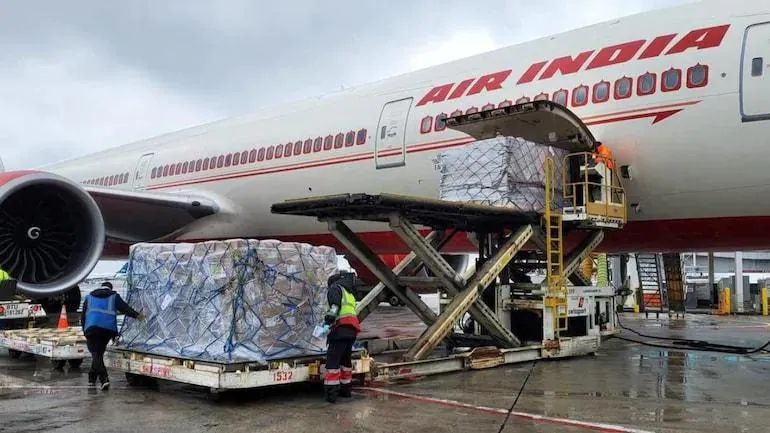
India has expressed concern over the soaring prices of medical supplies like oxygen concentrators and other essential medical supplies being procured from Chinese manufacturers by private Indian traders to deal with the COVID-19 surge in the country.
On one hand, China suspended cargo flights hampering COVID-19 medical supplies to India last month, on the other hand Chinese manufacturers ‘inhumanely’ hiked prices by 35-40%.
India’s Consul General to Hong Kong Priyanka Chauhan called on China to help stop the sharp increase in prices of such essential medical items and restore the normal frequency of cargo flight services to maintain a steady supply chain as these are slowing arrivals of medical goods to India. Chauhan said in an interview with a Hong Kong-based newspaper that our expectation at this point is that the supply chain should remain open and product prices should remain stable. Pointing out the lack of government level support from China, Chuahan said, there has to be a sense of governmental level support and efforts.
On the need for more government-level cooperation between China and India during the pandemic for more of a guarantee on price stability and supply chain, Chauhan said that India would be open to discussing the issue to see if a better mechanism could be agreed. China’s efforts have been largely confined to private companies and donations from the Red Cross and Red Crescent societies, while other nations have pledged government help.
Chauhan’s comments came in the backdrop of efforts by private Indian traders to source much-needed medical supplies, especially oxygen concentrators from China to fight the second wave of COVID-19 amid nearly quadrupled prices and a disrupted cargo operation from China to India. Importers from India are also lamenting the delays in delivery of supplies despite full payment in advance at a higher price.
Observers say that in absence of any sort of government level support, Chinese businesses have hiked the prices unreasonably giving reasons of high demand and lack of raw material which may not be completely true. In this regard, Chauhan said, “Even if there is a little bit of supply-demand pressure, there has to be some stability and predictability to product prices.”
She said a phone conversation between Chinese Foreign Minister Wang Yi and his Indian counterpart S Jaishankar in April had helped with the clearance and approval of cargo flights, but they had not returned to the same frequency as before the second wave. She suggested that higher-level assurances to officials for flight clearance could help.
“Unreasonable control should be avoided, and transport linkages should be maintained,” she said. The cargo flight disruptions were amplified by the decision by Sichuan Airlines to suspend all its 11 cargo flights for 15 days from April 26, citing coronavirus the situation in India. Though the state-run airline said it is reviewing its plans to restore the flights, it is yet to do so.
Freight Forwarders in Shanghai told Prasar Bharati correspondent in Beijing that Sichuan Airlines has announced plans to restore three of its freight flights from Chongqing and Xian to Delhi from 17th May, but no official announcement has yet been made. Currently, the air shipments are being carried by other airlines including India’s Spice Jet and Blue Dart, which runs empty flights from India to bring the medical supplies from China.
About the travel bans due to the COVID-19 situation in India, Chauhan said she appreciated the need for travel bans based on public health concerns but added that India was asking China to facilitate cargo flights so that supplies could be delivered. About the international response to rush aid to India, Chauhan said more than 50 countries have supported India by sending supplies.
(Source: DD News)
